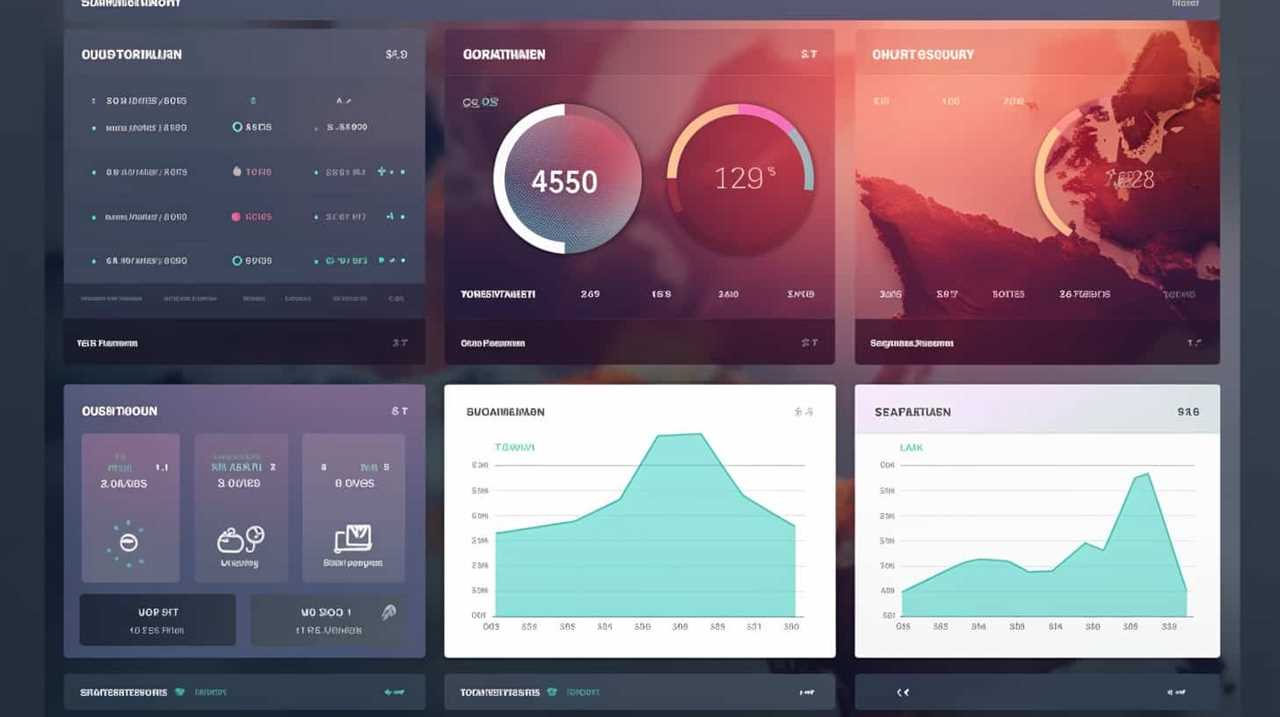Welcome to our comprehensive guide on SEO vocabulary and definitions. Our goal is to help you navigate the world of search engine optimization with ease.
In this guide, we’ll cover important concepts like on-page and off-page SEO, keyword research, meta tags, and backlinks. By understanding these terms, you’ll be equipped to boost your website’s visibility and drive more organic traffic.
Let’s dive in and master the art of SEO together!
Key Takeaways
- On-page SEO involves optimizing individual web pages to improve search engine rankings and attract organic traffic.
- Off-page SEO focuses on optimizing external factors such as link building and social media presence to improve website visibility and drive traffic.
- Keyword research is crucial for creating an effective SEO strategy that targets the right keywords and drives organic traffic.
- Meta tags, including the meta title, meta description, and meta keywords, provide information to search engines and improve website visibility and click-through rates.
On-Page SEO
In our article on SEO terms and definitions, let’s dive into the importance of on-page SEO and how frequently it plays a crucial role in optimizing website content.

On-page SEO refers to the practice of optimizing individual web pages to improve their search engine rankings and attract organic traffic. It involves various elements such as content optimization, keyword research, meta tags, and URL structure.
By optimizing the content on each page, you can ensure that it’s relevant, informative, and engaging for both users and search engines. Conducting an SEO audit is an essential step in identifying areas for improvement and implementing effective optimization strategies.
Off-Page SEO
Off-Page SEO involves optimizing external factors to improve website visibility and organic traffic. Here are three essential strategies for effective off-page SEO:
- Link Building: Building high-quality backlinks from reputable websites is crucial for off-page SEO. These links act as signals to search engines, indicating that your website is trustworthy and authoritative.
- Social Media Presence: Having a strong presence on social media platforms can significantly impact your off-page SEO. Engaging with your audience, sharing valuable content, and promoting your website can help increase brand awareness and drive traffic.
- Online Reputation Management: Monitoring and managing your online reputation is essential for off-page SEO. Positive reviews, mentions, and testimonials can enhance your website’s credibility, while negative feedback can harm your reputation.
Transition: Now that we understand the importance of off-page SEO, let’s move on to the next crucial aspect of SEO: keyword research.

Keyword Research
Now let’s delve into the process of conducting keyword research for effective SEO optimization.
Keyword research is a crucial step in creating an SEO strategy that drives organic traffic to your website. By understanding the search terms and phrases that your target audience uses, you can optimize your website content to rank higher in search engine results.
One important aspect of keyword research is competitor analysis, where you analyze the keywords your competitors are targeting and identify opportunities to differentiate yourself.
Additionally, long tail keywords, which are more specific and less competitive, can help you attract highly targeted traffic.

Conducting thorough keyword research allows you to optimize your website for the right keywords and gain a competitive edge.
In the next section, we’ll explore the importance of meta tags in SEO optimization.
Meta Tags
Let’s now explore the importance of meta tags in optimizing our SEO strategy. Meta tags are snippets of text that provide information about a web page’s content to search engines. They play a crucial role in improving our website’s visibility and attracting relevant organic traffic.
Here are three key reasons why meta tags are essential for effective SEO:

- Meta Title: The meta title tag is displayed as the clickable headline in search engine results. It should be concise, relevant, and contain targeted keywords to grab users’ attention and improve click-through rates.
- Meta Description: The meta description is a brief summary of the page’s content. It appears below the meta title in search results and influences users’ decision to click on our website. It should be compelling, informative, and include relevant keywords to entice users to visit our site.
- Meta Keywords: Although not as impactful as they used to be, meta keywords can still provide search engines with additional information about our content. Including relevant keywords can help search engines understand the focus of our web page.
Backlinks
Backlinks play a crucial role in enhancing our website’s visibility and attracting relevant organic traffic. These are incoming links from external websites that direct users to our site, signaling to search engines that our content is valuable and trustworthy.
To build effective backlinks, we need to employ various strategies. One approach is to create high-quality content that others will naturally want to link to. Additionally, we can reach out to other websites in our industry and request backlinks.
When acquiring backlinks, the anchor text used is also important. This is the clickable text that appears in a hyperlink and should be relevant to the content it’s linking to. By using specific keywords in the anchor text, we can further optimize our website for search engine rankings.
Frequently Asked Questions
How Does Website Design and User Experience Affect SEO Rankings?
Website design and user experience play a crucial role in affecting SEO rankings.

When it comes to website architecture, a well-designed and user-friendly site allows search engines to crawl and index pages more effectively.
Additionally, a positive user experience, such as fast page loading times and easy navigation, can lead to lower bounce rates and higher engagement.
Content relevance is also important, as search engines prioritize websites with high-quality, relevant content.
Optimizing both website design and user experience can greatly improve SEO rankings.

What Are the Best Practices for Optimizing Images for Seo?
When it comes to optimizing images for SEO, there are a few best practices to keep in mind.
First, make sure to use descriptive file names and alt tags that include relevant keywords. This helps search engines understand what the image is about.
Additionally, compressing the image file size can improve page load times, which is important for user experience and SEO rankings.
Implementing these image optimization techniques can greatly benefit your website’s SEO performance.

Can Social Media Presence Impact a Website’s SEO Performance?
Yes, social media presence can have a significant impact on a website’s SEO performance.
By actively engaging with users on platforms like Facebook, Twitter, and Instagram, you can increase brand visibility, drive traffic to your site, and generate valuable backlinks.
Additionally, social media signals such as likes, shares, and comments can indicate to search engines that your content is relevant and trustworthy.
Therefore, a strong social media strategy is essential for improving SEO performance.

How Does Website Speed Affect SEO Rankings?
Website speed plays a crucial role in SEO rankings. Just like a well-oiled machine, a fast-loading website ensures a smooth user experience and encourages visitors to stay longer.
Search engines value websites that provide a seamless browsing experience, prioritizing them in search results. Slow-loading websites, on the other hand, frustrate users and can negatively impact SEO rankings.
Is It Necessary to Have a Mobile-Friendly Website for SEO Success?
Having a mobile-friendly website is crucial for SEO success.
With the rise of mobile usage, search engines like Google prioritize mobile first indexing, meaning they prioritize the mobile version of a website when determining search rankings.

Responsive design is of utmost importance, as it allows your website to adapt and provide a seamless user experience across different devices.
Ignoring mobile optimization can result in lower rankings and decreased visibility, ultimately impacting your SEO efforts.
Conclusion
In conclusion, mastering SEO is like discovering the secret to unlimited online success.
With on-page and off-page techniques, keyword research, meta tags, and backlinks, you have the power to skyrocket your website’s visibility and drive massive organic traffic.

It’s a game-changer, a game of domination where you leave your competitors in the dust.
So, don’t underestimate the power of SEO; it’s the magic wand that can turn your website into an unstoppable force in the digital realm.









